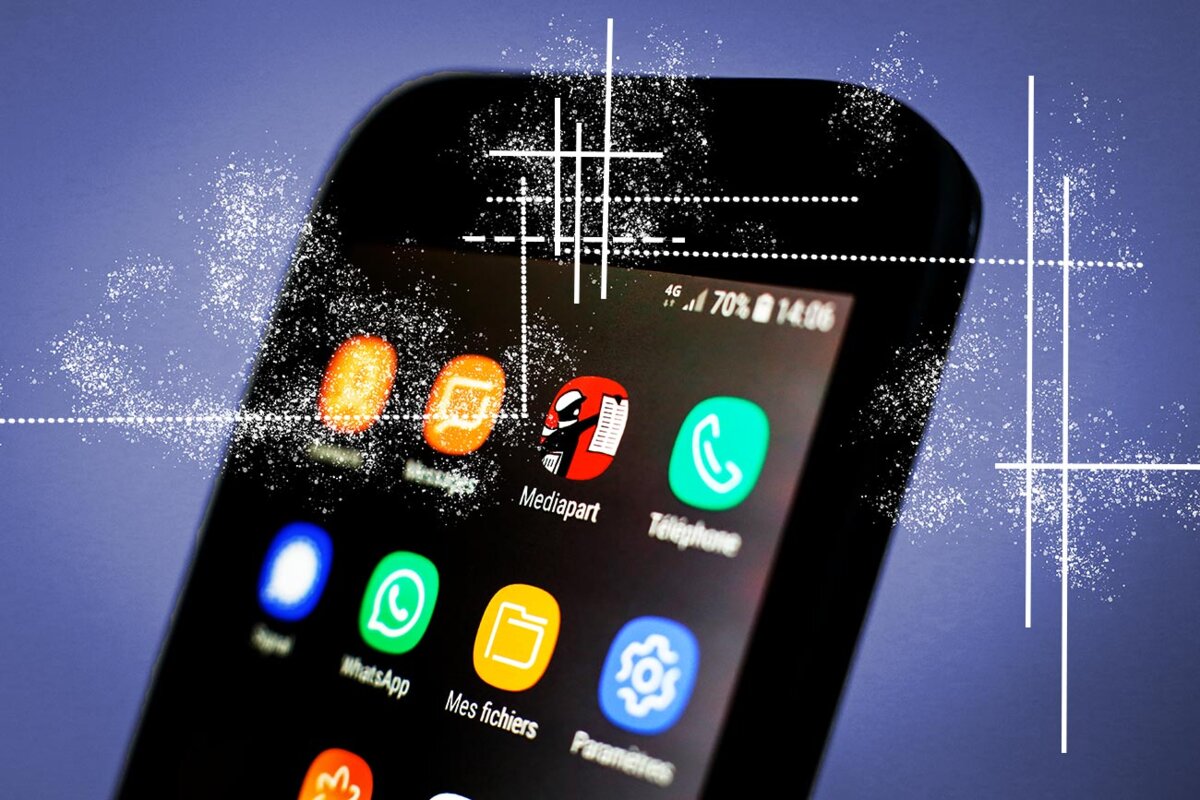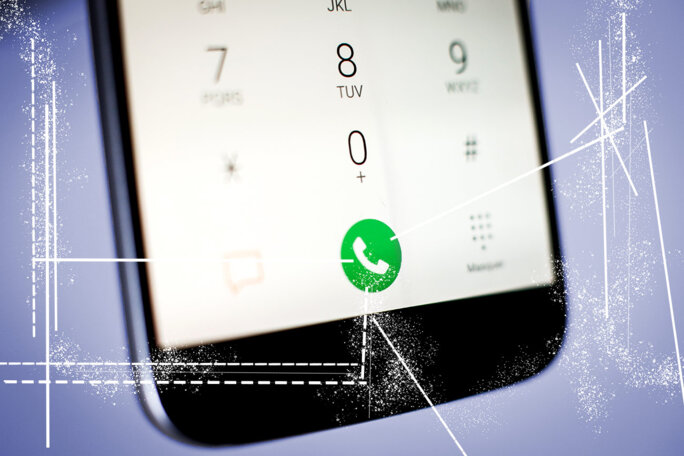The mobile telephone numbers of Mediapart reporter Lénaïg Bredoux and co-founder and publishing editor Edwy Plenel feature among the ten thousand that have been targeted by the Moroccan secret services using Pegasus spyware supplied by the Israeli firm NSO Group.
For several months the repressive state machinery of the North African country violated the privacy of these two journalists, harmed the freedom of the press and a profession whose duty it is to inform, and stole and used personal and professional data. No other member of the Mediapart editorial team had their phone spied on in this way.
The spying is part of a broader scandal involving NSO Group's Pegasus spyware which was sold to its government clients around the world. Though NSO says the spyware was only intended to be used to combat “serious crime and terrorism”, a data leak and subsequent investigations by international media have established that many countries around the world drew up lists of telephones numbers to spy on, including those of many journalists. The spyware is said to be capable of compromising a phone, extracting all data stored on it and activating its microphone to eavesdrop on conversations.
The leaked records were initially accessed via Forbidden Stories, a nonprofit journalism organisation, and Amnesty International. In the case of Mediapart, detailed technical analysis carried out by Amnesty International’s Security Lab on our journalists' phones with their agreement has established exactly when this surveillance by the Moroccan authorities took place.
It began on February 23rd 2019 with the mobile phone of Lénaïg Bredoux who was investigating sexist and sexual violence, and who had become our editorial lead on such issues. This spying continued until July 1st 2019 before resuming, with greater intensity, from July 8th 2019 to May 27th 2020. In the case of Edwy Plenel's phone the infection with the Pegasus spyware lasted two months, from July 5th to September 5th 2019.

Enlargement : Illustration 1

Two months before that, from June 21st to June 23rd 2019, Mediapart's publishing editor had gone to Morocco to take part in a human rights forum organised in the port city of Essaouira during the Gnaoua Musiques du Monde Festival. Accepted at the request of Ali Amar, editor of the online newspaper Le Desk, which was then a partner of Mediapart and which was supporting the forum, the invitation involved taking part in a debate under the title 'The power of culture against the culture of violence' (see video here).
Speaking before an audience which included several Moroccan officials, notably André Azoulay, an advisor to King Hassan II and then his son and successor Mohammed VI, Edwy Plenel was careful to publicly state his solidarity with the Hirak Rif Movement, a Morocco protest movement some of whose supporters had been given heavy prison terms a few months before despite an appeal (see here and here).
On July 5th 2019, in other words just after his return to France, the Moroccan secret services decided to infect Edwy Plenel's mobile telephone with the Pegasus spyware at the same time as they resumed and intensified their surveillance of Lénaïg Bredoux's phone. The kingdom's security services were already aware of our colleague after she had written several articles in 2015 about France's close relations with Morocco's secret services and their boss Abdellatif Hammouchi, who is suspected of involvement in torture (see article here). Edwy Plenel, meanwhile, was behind the 1990 publication of the book 'Notre ami le roi' ('Our friend the king') by Gilles Perrault, which revealed the scale of the human rights violations taking place in Morocco.
Yet aside from the Moroccan bureaucracy's prior knowledge of our journalists, the spying on them in 2019 and 2020 had a particular purpose at the time. All the indications from the timing of this surveillance and the choice of targets are that this spying formed part of a repressive attack by the kingdom against what remained of the independent media and journalists there, a crackdown that began in the summer of 2019. It was also during this same period in which Mediapart was targeted that Amnesty International revealed for the first time how the NSO spyware was being used against activists and journalists. In the case of Morocco the Pegasus spyware had been employed to target academic and human rights activist Maati Monjib and the investigative journalist Omar Radi (see Amnesty's reports here and here).
Omar Radi is a co-founder of Le Desk, of which Mediapart was a partner. On December 26th 2019 he was initially detained because of a Tweet critical of a decision by the country's court system concerning protestors from the Hirak Rif Movement (read the Mediapart article in support of him here). Having been given a four-month suspended prison sentence, he was later hauled in again on June 24th 2020 over a false accusation of passing information to foreign intelligence agencies. He was detained in preventive custody on July 29th 2020 for “harming the external and internal security of the state, rape and indecent assault”. He is still in custody today, awaiting judgement as part of an unfair process against which he is fighting (read Mediapart's first investigation into Omar Radi's case here).

Enlargement : Illustration 2

Like his fellow journalist Soulaimane Raissouni, who on July 9th 2021 was given a five-year jail term in absentia for “sexual assault”, as well as other figures in Moroccan civil society, Omar Radi is the victim of a new repressive weapon invented by the North African kingdom against journalists who upset it. Against an international backdrop of heightened awareness of sexist and sexual violence, the #MeToo movement is being used by the authorities in Morocco as a kind of Trojan horse to repress and discredit critics, thanks to the creation or or manipulation of legal cases in this domain (see Rachida El Azzouzi and Rosa Moussaoui's latest investigation on this here).
Moreover, since she revealed what became the Baupin affair – involving French Member of Parliament Denis Baupin - Lénaïg Bredoux has been known as a pioneer in the media in relation to investigations into sexual aggression and harassment. When the spying on her phone began on February 23rd 2019, the defamation case that Denis Baupin had tried to bring against Mediapart had just ended, on February 9th. At the time Lénaïg Bredoux was also giving interviews in the international press about #MeToo (see here).
All this suggests that the spying on Mediapart was part of the offensive designed to silence independent journalists in Morocco, by seeking to find out how we investigate in this area, in order to feed the scenarios dreamt up by the country's security forces. However, one cannot rule that the spying also served other purposes, through the use of stolen data and sharing them with other intelligence agencies. The only way to be sure is for the justice system here to take up the case and carry out an independent investigation on this large-scale spying in France organised by Morocco.
That is why Mediapart has asked its lawyer Emmanuel Tordjman, from the Seattle law firm, to file a complaint on Monday 19th July with the state prosecutor in Paris, in the name of our newspaper, Lénaïg Bredoux and Edwy Plenel. Beyond any legal developments, it goes without saying that this attack on fundamental freedoms, carried out by a foreign power against an independent newspaper, demands a strong reaction from the French authorities which goes beyond a basic condemnation. We are waiting for it.
-------------------------------------------------------------------------
- The original French version of this article can be found here.
English version by Michael Streeter


